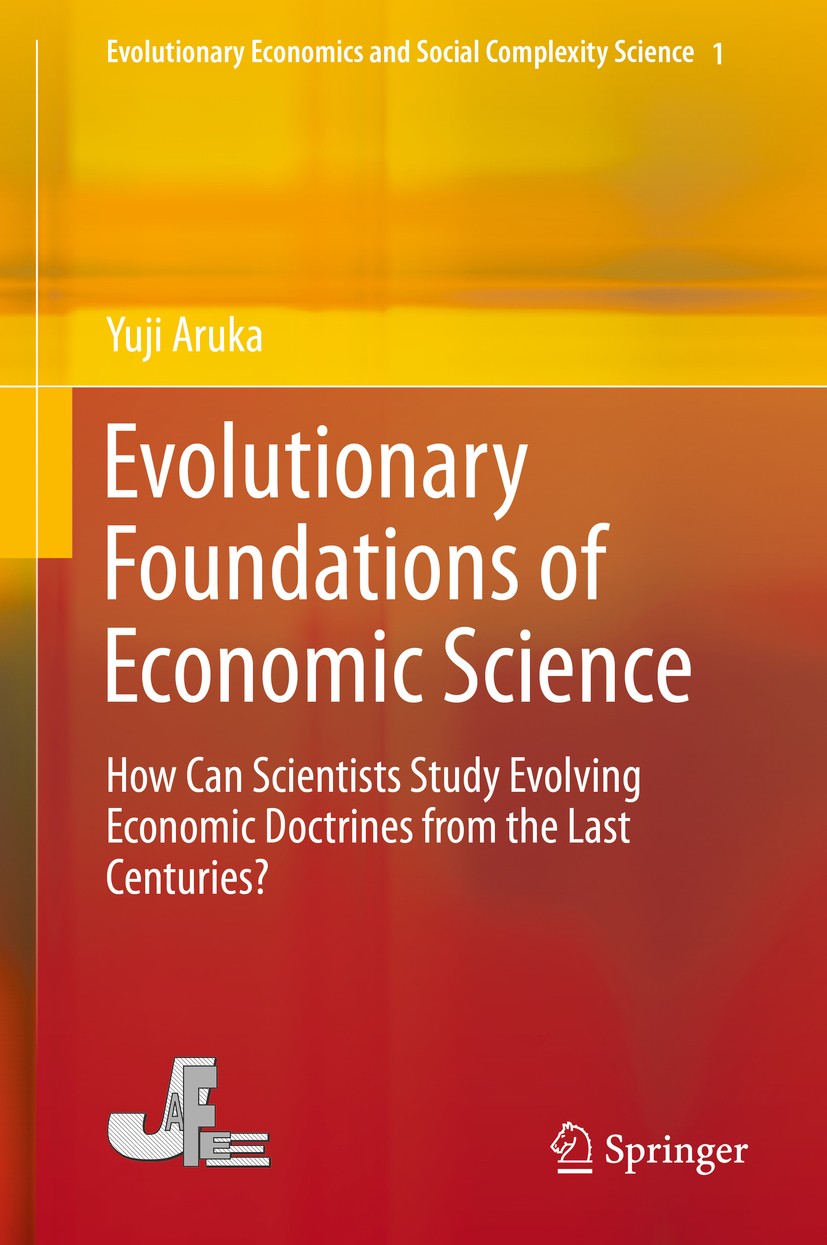| 书目名称 | Evolutionary Foundations of Economic Science |
| 副标题 | How Can Scientists S |
| 编辑 | Yuji Aruka |
| 视频video | http://file.papertrans.cn/318/317948/317948.mp4 |
| 概述 | Briefing on the evolving doctrines of economic theory of the last two centuries.Investigation of the change in meanings of the economy and the market and the associated theories.Integrative analysis o |
| 丛书名称 | Evolutionary Economics and Social Complexity Science |
| 图书封面 |  |
| 描述 | This book aims to discern and distinguish the essential features of basic economic theories and compare them with new theories that have arisen in recent years. The book focuses on seminal economic ideas and theories developed mainly in the 1930s to 1950s because their emergence eventually led to new branches of economics. The book describes an alternative analytical framework spreading through the interdisciplinary fields of socioeconophysics and sociodynamics. The focus is on a set of branching or critical points that separate what has gone before from what has followed. W. Brian Arthur used the term “redomaining” when he referred to technological innovation. In the present volume the author aims to re domain economic theories suited for a new social order. Major technological innovations accompany not only changes in the economy and the market but changes in their meaning as well. In particular, the evolution of trading technology has changed the meaning of the “invisible hand.” At the end of the last century, the advent of socioeconophysics became a decisive factor in the emergence of a new economic science. This emergence has coincided with changes in the implications of the e |
| 出版日期 | Book 2015 |
| 关键词 | Complex adaptive systems; Heterogeneous interaction; Redomaining of theory; Sociodynamics; Trading techn |
| 版次 | 1 |
| doi | https://doi.org/10.1007/978-4-431-54844-7 |
| isbn_softcover | 978-4-431-56212-2 |
| isbn_ebook | 978-4-431-54844-7Series ISSN 2198-4204 Series E-ISSN 2198-4212 |
| issn_series | 2198-4204 |
| copyright | Springer Japan 2015 |
 |Archiver|手机版|小黑屋|
派博传思国际
( 京公网安备110108008328)
GMT+8, 2025-12-27 05:22
|Archiver|手机版|小黑屋|
派博传思国际
( 京公网安备110108008328)
GMT+8, 2025-12-27 05:22


